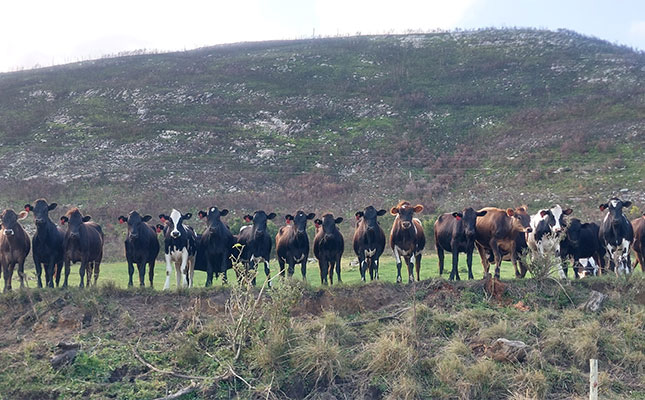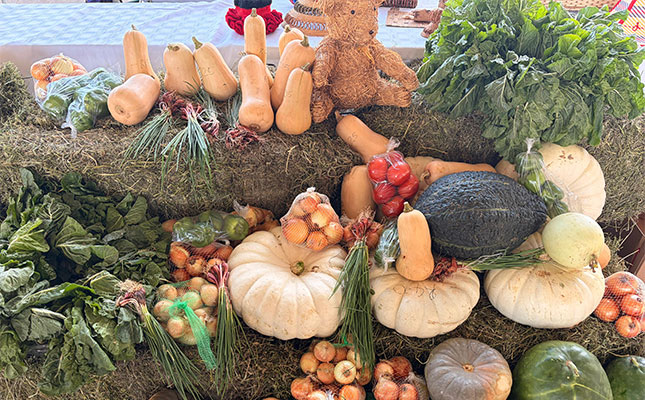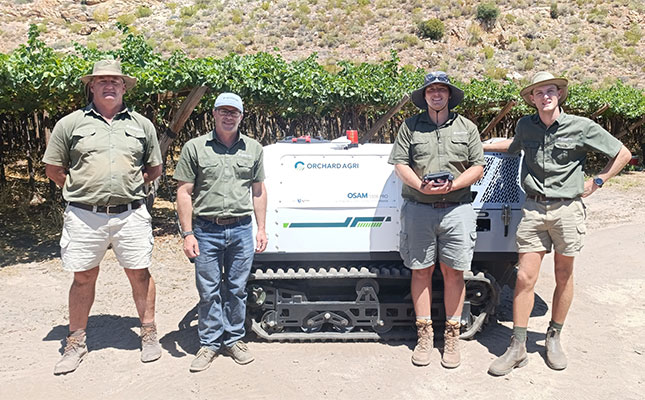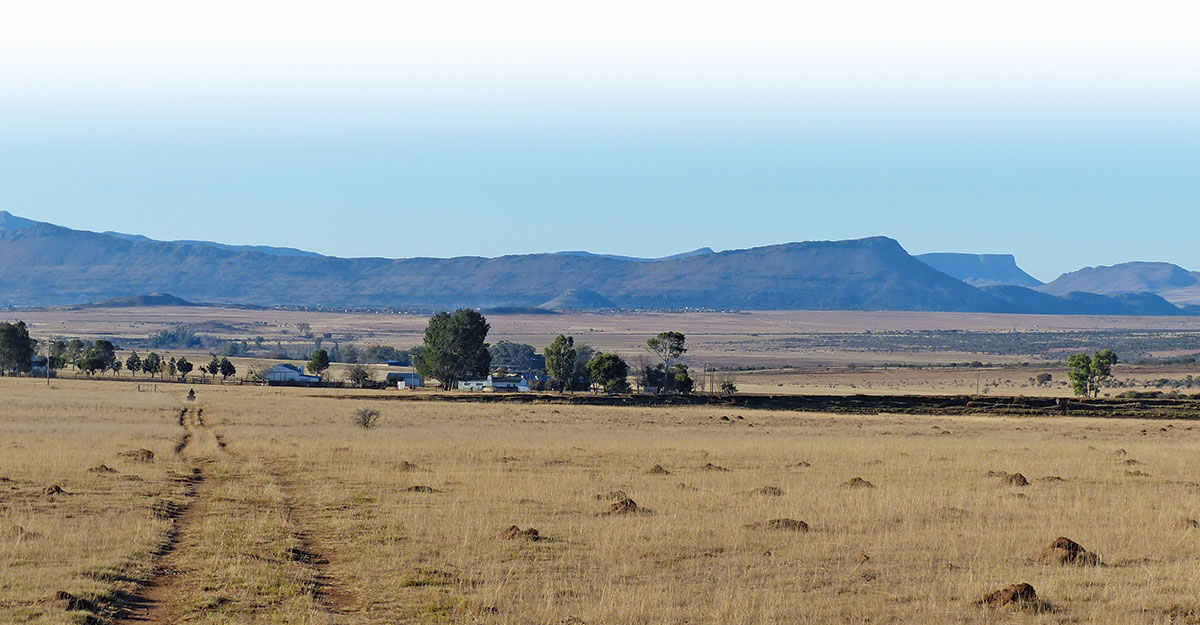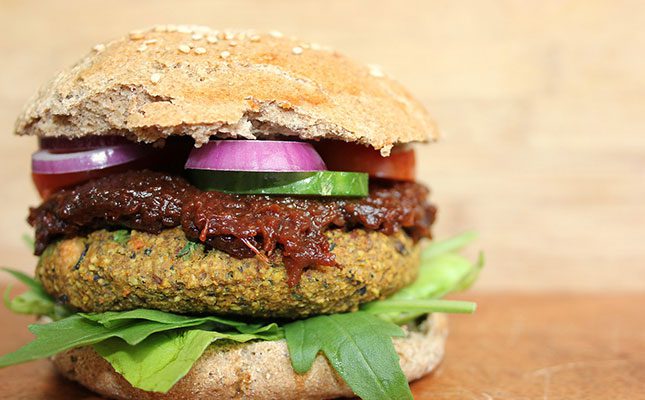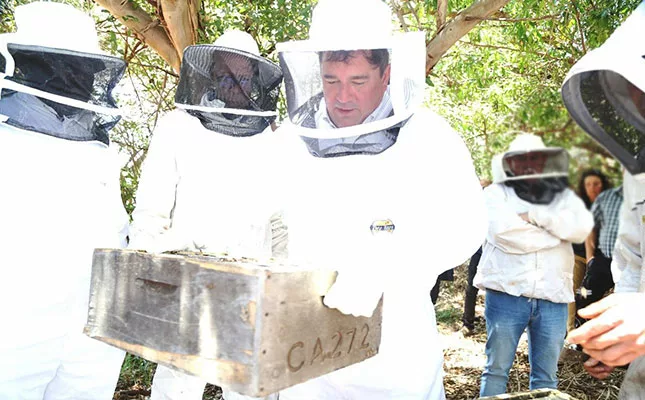
Speaking at the Beekeeping Awareness Field Day at Oude Raapkraal in Cape Town, Steenhuisen highlighted South Africa’s economic reliance on honeybees and the strategic role bees play in safeguarding national food security.
He opened the event by stressing the industry’s importance: “Today, we gather to celebrate the honeybee because of its enormous impact on our agriculture, our economy, and our future.”
READ From hive to jar: turning raw honey into liquid gold
Steenhuisen noted that two local bee subspecies, the Cape honeybee (Apis mellifera capensis) and African honeybee (A. mellifera scutellata), are formally recognised under the Animal Improvement Act (No. 62 of 1998).
“This Act provides for genetic improvement to expand the production and performance of animals. This implies that bees are recognised as an important species in the agriculture sector for their contribution to food security, income generation, and economic development,” he explained.
Steenhuisen added that beekeeping is part of a broader agricultural value chain that supports jobs. “It contributes directly and indirectly to job creation in South Africa, from the beekeepers to the farmworkers involved in pollination-dependent crops.”
He also highlighted the enormous importance of bees for the country’s crop production. “In South Africa, bee pollination contributes more than R10 billion every year to agriculture. [Bees] pollinate almonds in the Western Cape, citrus in Limpopo, macadamias in Mpumalanga, and sunflowers in the Free State.
“Without them, supermarket shelves would be emptier, prices higher, and farming communities poorer.”
Local production vs demand
Despite this, the country remains a net importer of honey. “South Africa produces up to 2 500t of honey per year, yet we consume nearly double that amount. We rely heavily on imports of natural honey, with more than 80% of our imported honey coming from China. We also import from Zambia, India, Poland, and Yemen.
“Since there is such a high demand for this product, we have seen an increase in poor-quality and sometimes adulterated honey. The Department of Agriculture’s Directorate for Inspection Services will again conduct an operation in December, removing products that are labelled and sold as ‘honey-based syrup’ from stores. These operations are part of our efforts to ensure that citizens get the quality goods they intended to purchase,” Steenhuisen explained.
READ Government cracks down on illegal honey and liquor
He further emphasised the economic opportunities that beekeeping offers. “With relatively low land and capital requirements, beekeeping offers a viable entry point for youth, women, and rural entrepreneurs. It can be practised alongside other forms of agriculture, creating economic multipliers within communities.
“Honey, beeswax, propolis, and other hive products can generate income through local markets, agro-processing, and even exports.”
According to Steenhuisen, following the Agriculture Department’s participation in the 49th Apimondia International Congress in Denmark in September, discussions were initiated between South Africa and the EU regarding the export of honey to the latter.
“In accessing this important honey export market, the [Agriculture] Department is in the process of finalising the Residue Monitoring Plan to demonstrate compliance with EU requirements.
“To date, there are some African countries that are already exporting honey to the EU, such as Tanzania, Ethiopia, and Zambia, and South Africa is more than eager to join them,” Steenhuisen said.
Strategic steps underway
He concluded his remarks by saying his department has made progress on strategic areas to support the bee industry for sustainability.
These include the development of a national beekeeping strategy for South Africa, the finalisation of the Residue Monitoring Plan for the export of honey to the EU, the establishment of the honey value chain round-table forum, and lab accreditation in South Africa for testing honey for diseases and chemical residue.
Get trusted farming news from Farmers Weekly in Google Top Stories.
➕ Add Farmers Weekly to Google ✔ Takes 10 seconds · ✔ Remove anytime

